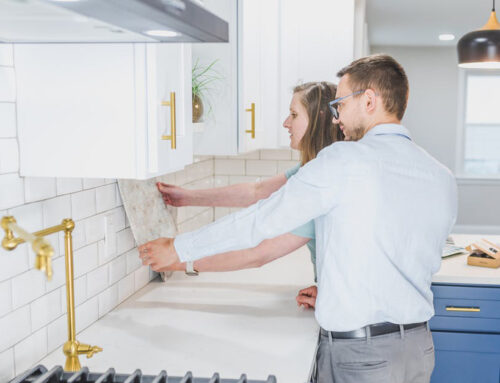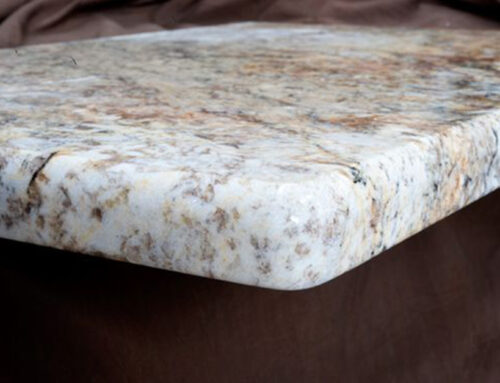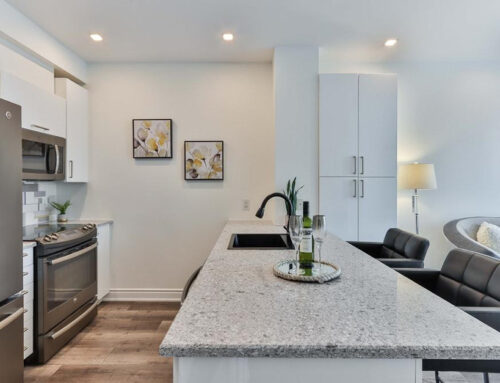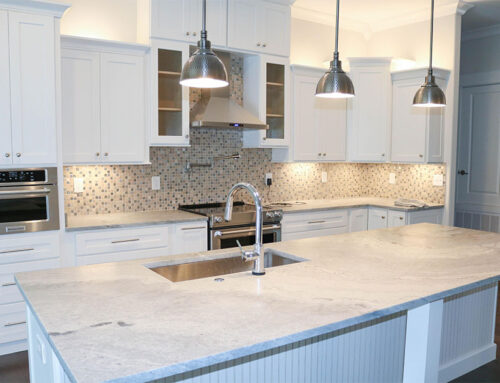Are you looking for a durable, low-maintenance natural stone for a custom countertop renovation? Then soapstone countertops might be the perfect fit. This material is praised for offering many of the same durability benefits as stones like granite, but without the annual maintenance required. Before deciding on a material for your countertop projects, consider these pros and cons of soapstone countertops.
What Is Soapstone?
Like marble and quartzite, soapstone is a metamorphic rock made of various minerals. It derives its name from the slippery, soapy feel of its surface, which is caused by the high amount of talc in its composition. Because it is softer than many other natural stones, it is easier to carve, making it a popular choice for sculpture and highly customized countertops. Soapstone comes in all shades of gray and exhibits elegant natural veining like marble, granite, and quartzite.
Pros Of Soapstone Countertops
Durability
Soapstone is a nonporous material, which means it will not absorb any liquids left on its surface. This makes it naturally stain resistant, so you do not need to worry about spilled red wine or lemon juice damaging the stone. Soapstone is also heat resistant, which means you can place a hot pan directly on the counter without damaging it.
Zero maintenance
Another perk of soapstone is that it does not need to be sealed. This is a distinct advantage soapstone has over other natural stones like granite, marble, and quartzite, which all require resealing as part of their regular maintenance.
Versatile
Soapstone is not just ideal for kitchens—it is also great for bathroom counters and fireplace fixtures. If you love the look and feel of soapstone, you can use it throughout your home for a unified look.
Comparable cost
The price of soapstone is comparable to other natural stones commonly used for custom countertops.
Cons of Soapstone Countertops
Scratching
Because of its softer properties, it is susceptible to scratches and nicks. The best way to protect soapstone countertops is simply to use a cutting board during food preparation, but some wear is inevitable. You can even out these blemishes by buffing the surface gently with sandpaper.
Limited colors
Soapstone comes exclusively in shades of green, gray, and black; so consumers have fewer options than with some other materials. It is also important to note that soapstone will gradually darken in color over time, though some believe this adds to the rustic character of the material. You can speed up this darkening process by treating the surface with mineral oil.
Seams
Soapstone is quarried in smaller pieces than granite or marble. Countertops larger than 7 feet will likely require multiple pieces, which means you will be left with visible seams. If you have small countertops, however, this will not be an issue.
Why Choose Soapstone Countertops?
In the end, soapstone is a great choice for those who are looking to invest in heat and stain-resistant surfaces with zero maintenance required. If you are still undecided, take a moment to consider the benefits of marble countertops or consider the reasons to choose granite. Then contact Phoenix Stone & Laminate for a free on-site estimate. We have decades of experience providing custom countertops to homes all over Austin and the surrounding cities.






